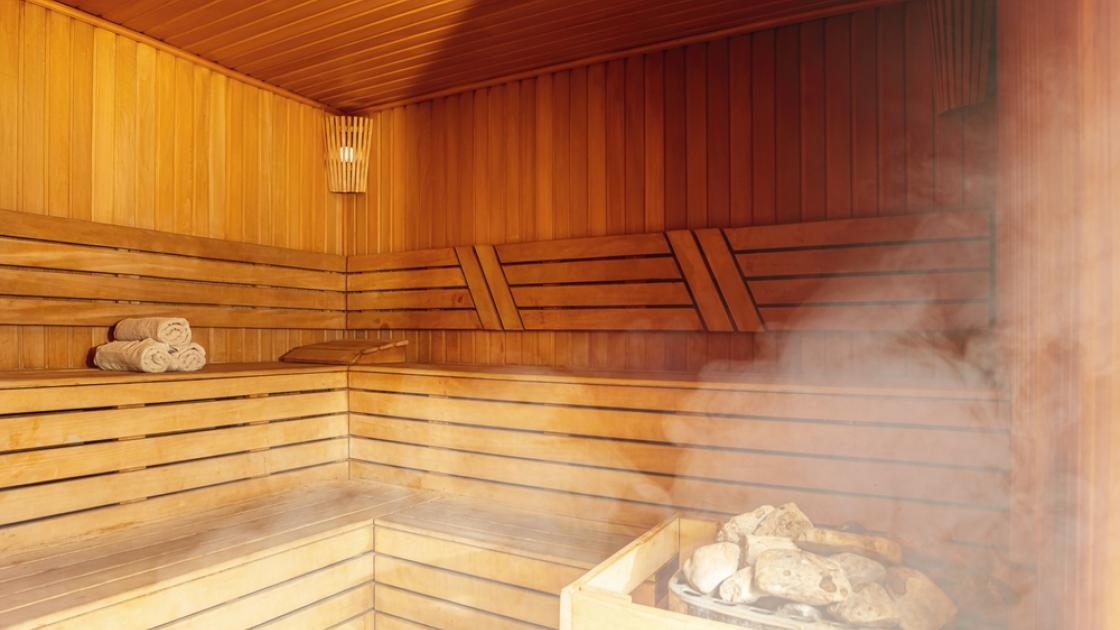
5 surprising health benefits of sauna use
Sauna bathing has long been popular in Nordic countries and has become more popular in the United States in recent years. But while many people might think that sitting in a sauna is only good for relaxation, a growing body of research suggests that regular sauna use may actually offer some impressive health benefits, too.
Types of saunas
A sauna is a small room filled with dry heat. Traditional Finnish saunas are common in many health clinics, day spas and recreational facilities. These are small, wood-planked rooms that are heated to a temperature somewhere between 70° to 100° Celsius (158° to 212° Fahrenheit) with a relative humidity of 10 to 20 percent. Heating is usually achieved with electricity or burning wood. Many of these saunas feature rocks that users can douse with water to increase the relative humidity in the air.
In traditional saunas, a person's body begins to sweat and their heart rate increases in response to the high temperature of the room. A newer type of sauna, called an infrared sauna, uses special infrared light waves to heat up a person's body directly, rather than the room itself.
Most of the research done on the benefits of sauna bathing has involved traditional Finnish saunas.
Five benefits of sauna bathing
So, is sitting in a hot sauna actually good for you? There are five possible health benefits, according to recent research summarized in Mayo Clinic Proceedings.
- May reduce the risk of cardiovascular disease, including high blood pressure and stroke
- May reduce the risk of certain types of dementia, including Alzheimer's disease
- May alleviate common respiratory ailments like asthma
- May improve pain for people with conditions like osteoarthritis, rheumatoid arthritis and fibromyalgia
- May help reduce stress and improve quality of life
As for how sauna use confers these health benefits, researchers have proposed a variety of possible mechanisms. For example, it's been suggested that sitting in a sauna may help by reducing oxidative stress and inflammation, improving blood vessel function and beneficially activating different parts of the nervous system.
These aren't the only suggested benefits of regular sauna use, by the way. For example, some reports indicate that sauna bathing may improve sleep and ease certain skin conditions like psoriasis. More research will help us understand all the ways saunas are health-promoting and who could benefit from regular use.
Is the sauna safe for me?
Most researchers and doctors agree that sauna bathing is safe and well-tolerated in most people when utilized properly, but it's not right for everyone. You should always check with your personal health care provider before using a sauna for the first time, especially if you have any medical conditions, are taking any prescription medications, are pregnant or are under medical supervision.
Research suggests that sauna use is not safe for people with certain health conditions, including:
- Unstable angina pectoris
- Recent myocardial infarction
- Severe aortic stenosis
Finally, don't consume alcohol if using a sauna, as this could increase the risk of potentially serious sauna-related complications including dehydration, decreased blood pressure, abnormal heart rhythms and even death in extreme cases.
Getting the most out of your sauna sessions
If your doctor gives you the go-ahead to use a sauna, the following tips should help you get the most out of it while also maximizing your safety and comfort:
- Aim for four to seven 20-minute sessions per week in a sauna heated to around 80° to 100° Celsius (176° to 212° Fahrenheit). This frequency has been shown in research to offer the most health benefits—but even just 2 to 3 times a week can be beneficial!
- Build up your tolerance slowly. Start with 5 to 10 minute sessions and gradually increase your sitting time until you can stay for about 15-20 minutes.
- Drink a glass or two of water and take a rinse-off shower before and after using the sauna.
- Wear light, loose-fitting clothing or a towel.
- If you begin to feel dizzy, sleepy, lightheaded, faint, ill or uneasy, leave the sauna immediately.
- Always make sure someone knows you are in the sauna.
Experience personalized health care delivered on the cutting edge of medical science
As area leaders in health care, clinical research and academic medicine, SIU Medicine is proud to provide southern and central Illinois with innovative solutions for the diagnosis, treatment and prevention of a wide range of health conditions. Find a doctor today who can help you maximize your quality of life with personalized care.



